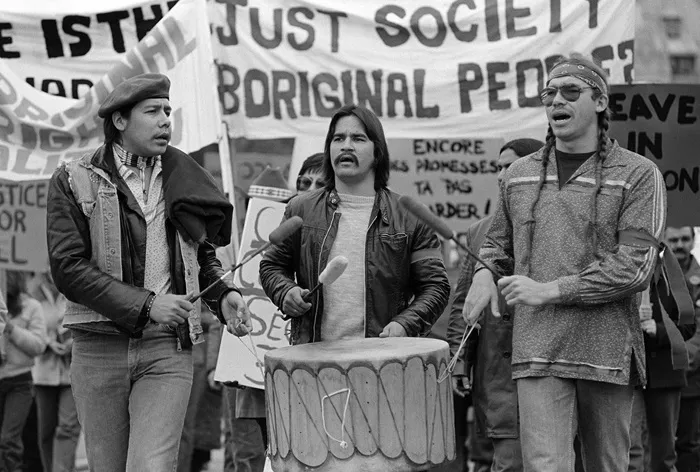June 13th holds a significant place in Canadian history, as it has witnessed a multitude of events that have shaped the country’s development, identity, and trajectory. From pivotal political decisions and constitutional milestones to cultural achievements and social movements, this date serves as a focal point for understanding the complexities of Canadian history. In this comprehensive article, we delve into the key events that have unfolded on June 13th throughout Canadian history, providing insights into their contexts, impacts, and enduring legacies.
The Arrival of Jacques Cartier in Canada (1534)
On June 13, 1534, French explorer Jacques Cartier first set foot on Canadian soil, landing on the shores of what is now Newfoundland. Cartier’s voyage was commissioned by King Francis I of France in search of a northwest passage to Asia and the exploration of potential trade routes and resources in the New World.
Cartier’s arrival marked the beginning of French exploration and colonization in Canada, paving the way for future expeditions and settlements along the St. Lawrence River. His voyages laid the foundation for French claims to the territory and established the groundwork for the fur trade and the development of New France.
See also: What Happened on May 13 in Canadian History?
The Founding of the Hudson’s Bay Company (1670)
On June 13, 1670, the Hudson’s Bay Company (HBC) was chartered by King Charles II of England, granting the company exclusive trading rights to the Hudson Bay watershed in present-day Canada. The HBC was established as a fur trading company with the primary objective of exploiting the lucrative fur resources of the region.
The founding of the HBC had far-reaching implications for the colonization and development of Canada, as it played a central role in the fur trade and the expansion of British influence in North America. The company’s trading posts and forts became important centers of economic activity and played a key role in shaping the social and cultural landscape of the Canadian frontier.
The Establishment of the Northwest Mounted Police (1873)
On June 13, 1873, the Canadian government passed the North-West Mounted Police Act, officially establishing the Northwest Mounted Police (NWMP). The NWMP was created to maintain law and order in the vast and sparsely populated territories of Western Canada, particularly in the wake of the Red River Rebellion and the influx of American whiskey traders.
The establishment of the NWMP represented a significant step in asserting Canadian sovereignty over the western territories and laying the groundwork for settlement and development. The Mounties, as they came to be known, played a crucial role in maintaining peace on the frontier, enforcing federal laws, and facilitating the orderly expansion of Canadian settlements.
The Quebec Conference (1943)
On June 13th, 1943, the Quebec Conference, also known as the Quadrant Conference, was held in Quebec City, Quebec, bringing together the leaders of the Allied powers to discuss strategy and coordination during World War II. The conference was attended by Prime Minister Winston Churchill of Great Britain, President Franklin D. Roosevelt of the United States, and Prime Minister William Lyon Mackenzie King of Canada.
The Quebec Conference resulted in several key decisions, including the planning of the D-Day invasion of Normandy and the establishment of the Combined Chiefs of Staff to coordinate military operations. The conference also laid the groundwork for the post-war reconstruction of Europe and the creation of the United Nations.
The Formation of the Dominion of Newfoundland (1907)
On June 13th, 1907, the Dominion of Newfoundland was established, granting the colony greater autonomy and self-governance within the British Empire. The formation of the Dominion of Newfoundland represented a significant milestone in the colony’s political development and marked its transition from a British colony to a self-governing dominion.
The Dominion of Newfoundland would remain a separate entity within the British Empire until its eventual accession to Canadian Confederation in 1949. The decision to join Canada followed a period of economic hardship and political instability in Newfoundland, as the colony struggled to cope with the effects of the Great Depression and the collapse of its fisheries industry.
The Enfranchisement of Indigenous Peoples (1960)
On June 13th, 1960, the Government of Canada passed the Indian Act Amendment, granting Indigenous peoples the right to vote in federal elections without having to give up their Indian status or treaty rights. The enfranchisement of Indigenous peoples represented a significant step towards achieving political equality and recognition of Indigenous rights in Canada.
The Indian Act Amendment was part of a broader effort to address systemic discrimination and inequality faced by Indigenous peoples in Canadian society. While the amendment represented an important milestone in the struggle for Indigenous rights, it also highlighted the ongoing challenges and injustices faced by Indigenous communities in Canada.
Conclusion
June 13th has been witness to a diverse array of events that have left an indelible mark on Canadian history and society. From the establishment of the Northwest Mounted Police to the Halifax Explosion, from the Quebec Conference to the establishment of Nunavut, each event reflects the complexities, challenges, and achievements of Canadian history. As we reflect on these events, may we gain a deeper understanding of Canada’s past and its ongoing journey towards reconciliation, diversity, and inclusivity.

